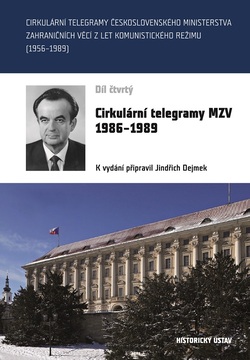Despatches of the Czechoslovak Ministry of Foreign Affairs 1986–1989. Vol. IV
 Year of publication:
2024
Year of publication:
2024
 Publisher:
Historický ústav
Publisher:
Historický ústav
 ISBN:
978-80-7286-430-0
ISBN:
978-80-7286-430-0

The forth part – in reality seventh volume – of the project of former “secret” Circular instructions and information of the Czechoslovak Ministry of Foreign Affairs from the years of the communist period brings a critical edition of more than 1000 relevant documents from the years 1986–1989. The documents illustrate the gradual transformation of the international climate as a result of the new soviet foreign policy of M. S. Gorbachev, new atmosphere in USSR – West relations and reception of these processes by the Prague government and party leadership. This was willing to carry out some economic reforms along Soviet lines and continue to build convenient relations with parts of western countries, but rejected the impetus for democratization. That's why Prague accepted from r. 1988 negatively both the radical reform processes in Hungary and the later democratization in Poland, which resulted in the first partially free elections and the subsequent emergence of the first non-communist government. Fundamentally, the situation in the Czech Republic was influenced by the gradual disintegration of the regime in the GDR, whose symptom was, among other things, the escape of thousands of "East" Germans through the West-German embassy in Prague to West Germany. Together with Moscow's stated positions, these factors contributed to the almost total international isolation of the communist regime in Czechoslovakia in autumn 1989 and to the relatively easy modus of its collapse in the second half of November of that year.


